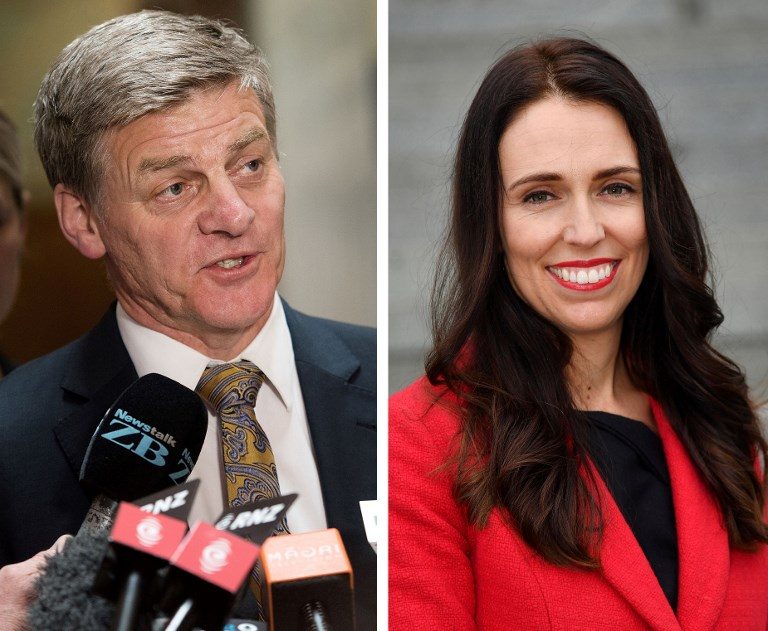SUMMARY
This is AI generated summarization, which may have errors. For context, always refer to the full article.

WELLINGTON, New Zealand – New Zealand’s conservative Prime Minister Bill English raced to a strong start in early election counting Saturday, September 23 although the figures still gave opposition leader Jacinda Ardern a realistic prospect of forming government.
With 20 percent of the vote counted, support for English’s National Party was 46.1 percent, while Ardern’s centre-left Labor was on 36.3, with New Zealand First (NZF) at 7.1 and the Green 6.1.
The major parties must forge coalitions to reach a majority under New Zealand’s proportional voting system, meaning English would still need support from maverick Winston Peters’ NZF to form government.
Ardern could also get over the line by teaming up with the Green and NZF, confirming Peters’ is likely to play kingmaker during this election. (READ: 3-way battle to replace Key as New Zealand PM)
“My guess is that this will be a government decided by Winston,” former Labor Party president Mike Williams told TVNZ.
National campaign director Steven Joyce said the early figures were encouraging for English but it was far too early to see how the election would play out.
The early results are mainly advance votes cast in the two weeks before election day and Labor MP Phil Twyford said that made them hard to predict.
“We’d have probably hoped to have done a bit better but it’s still early days, there’s a lot of these advance votes… so I’d wait a bit longer before drawing to many conclusions,” he told TVNZ.
The campaign has been the most volatile in recent memory, with momentum swinging from English to Ardern and then back again.
No party has claimed a majority government in New Zealand’s 120-seat parliament since proportional voting was adopted in 1996 and this election is unlikely to change that.
Peters, a populist anti-immigration campaigner, had given no indication of which party he would support.
Ardern was hoping for a high youth vote to counter her dip in the polls in the final week of campaigning and visited universities across the country encouraging students to cast their ballots.
“This is going to come down to whether or not people turn out and vote,” she said Friday.
‘Jacinda-mania’
English’s National Party was in the driving seat to win a 4th term until Ardern took over the Labor Party last month.
The 37-year-old galvanized support for the ailing centre-left party, giving it a 20-point popularity boost to bring it level with National.
Arden accused the government of inertia, saying that after 3 terms it has run out of ideas on issues such as housing affordability and protecting the environment.
Her policy platform includes free tertiary education and slashing immigration to reduce pressure on housing and infrastructure.
Ardern is bidding to become New Zealand’s youngest leader since 1856 and only the third woman to lead the South Pacific nation of 4.6 million people.
But the “Jacinda-mania” phenomenon waned as English attacked her financial credibility while pointing to his economic record over the past nine years.
The 55-year-old ex-farmer and father-of-6, who took over as prime minister when John Key stepped down last December, argued only National can maintain strong economic growth.
English also wants to make amends for his last leadership foray in 2002, when National slumped to a record defeat and won barely 20 percent of the vote.
While tipping a close race, he is confident National can win a fourth term, a feat no New Zealand government has achieved in more than 50 years.
The wildcard for both English and Ardern is Peters, whose party could decide the outcome of the election if it is as tight as polls predict.
The 72-year-old political veteran has shown in the past that he will back either side if the right offer is made.
In 1996, he helped install a National-led government in return for being made deputy prime minister, then in 2005 he joined a Labor coalition after being given the job of foreign minister.– Rappler.com
Add a comment
How does this make you feel?
There are no comments yet. Add your comment to start the conversation.